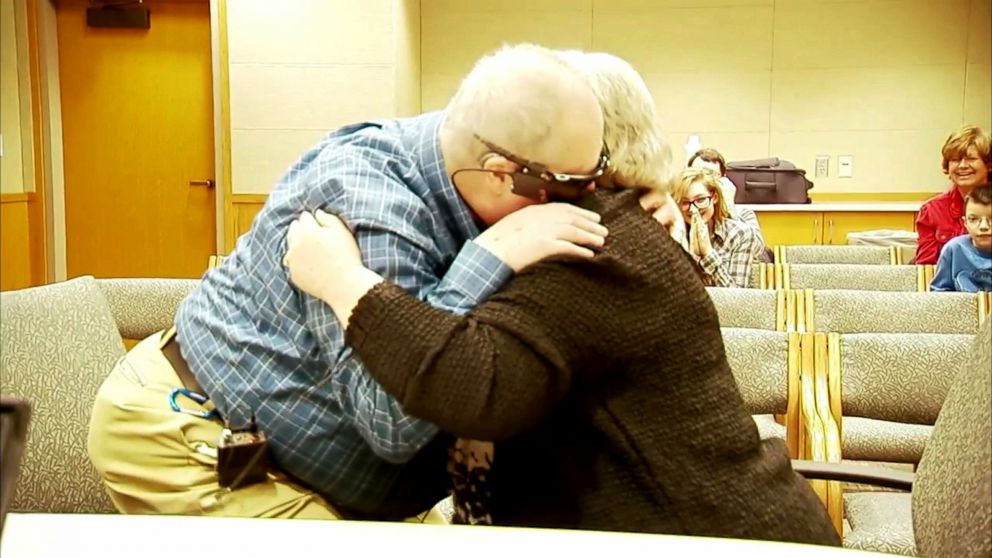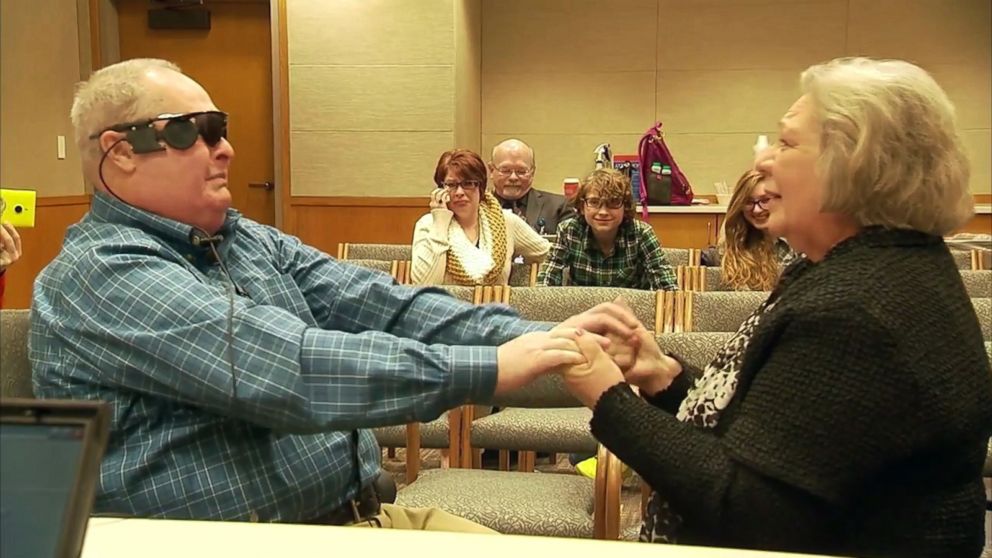Bionic Eye Lets Blind Man See Wife For 1st Time In 10 Years
It was love again at first sight.
— -- It was love again at first sight for a man who went blind 10 years ago.
Allen Zderad, a 68-year-old retiree from Minnesota, saw his wife for the first time in more than a decade thanks to a bionic eye implanted by doctors at the Mayo Clinic earlier this month.
“Thank you,” Zderad said in the touching scene captured on video. “It’s crude but it’s significant. ... It’ll work.”

“Who do you see?” His wife Carmen asked Zderad just before the two hugged each other in a long, tearful embrace.

Zderad has retinitis pigmentosa, a degenerative condition that attacks the retina. There is no treatment or cure for the disease. He told ABC News his vision gradually deteriorated over a 20-year period until he was only able to sense very bright light.
After his grandson was diagnosed with the same condition last year, Zderad was recruited by the Mayo Clinic and Second Sight, the implant’s maker, to test out the device. Dr. Raymond Iezzi Jr., a Mayo Clinic researcher and ophthalmologist, performed the surgery.
The bionic eye implant sends light wave signals to the optic nerve, bypassing the damaged retina, a statement from the Mayo Clinic explained. In January, a tiny wafer-like chip was embedded in Zderad's right eye. Two weeks later, the eyeglass-style prosthetic device was activated.
Zderad described his new-found abilities as “artificial sight.” He is able to make out shapes, forms and outlines in intermittent flashes. Everything is in black and white now, but with training and periodic upgrades over a five-year period he is confident that he will begin to see more sharply, he told ABC News.
“What an exciting, emotional thing to say that, ‘Yes, that is my wife,’” Zderad said. “I am grateful they made this as much about the person as the technology.”




